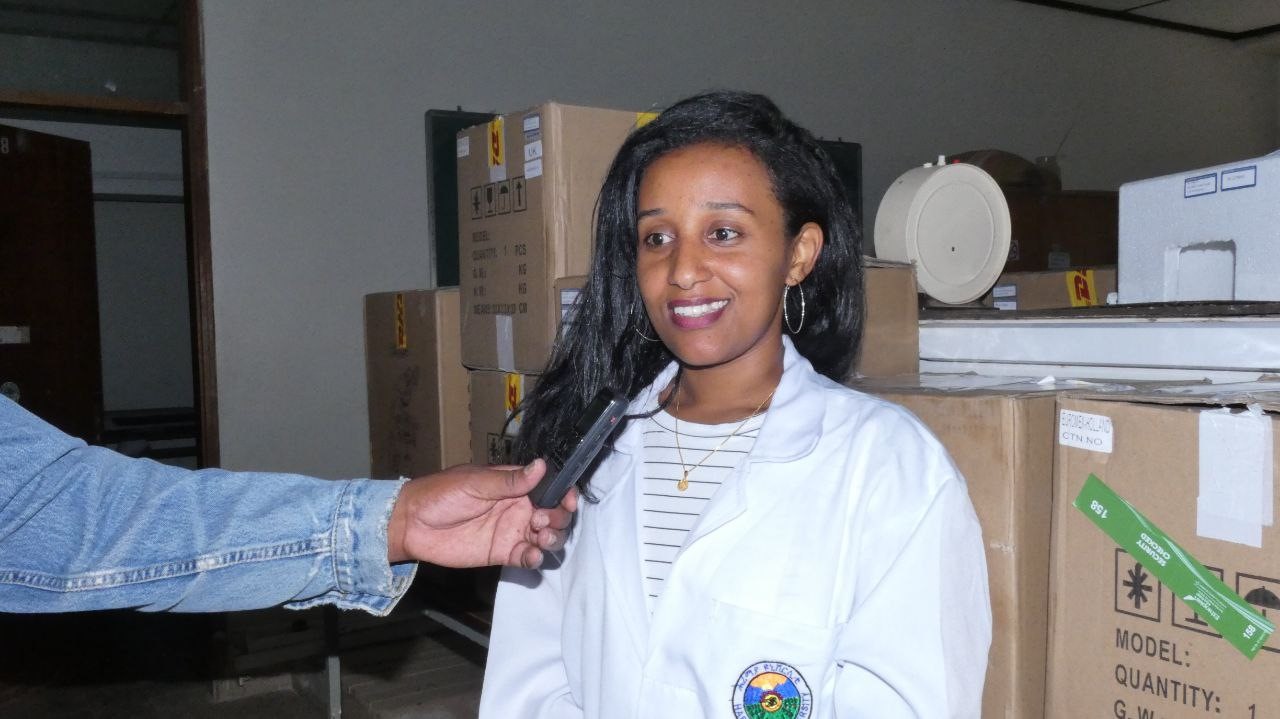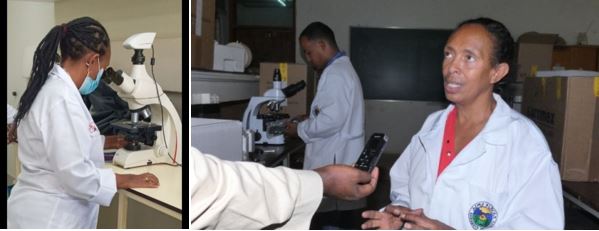Haramaya University Mitigates Lab-Equipment Shortage through Projects.
Haramaya University received herbal disease diagnostic equipment worth over 1.5 million birr from Gent University, Belgium.

The University received the equipment through a project called NEMEDUSSA (Nematology Education in Sub-Sahara Africa) which is based in Gent University, Belgium.

According to Ms. Eleni Kidane, a lecturer of plant biology at Haramaya University College of Agriculture and Environmental Sciences and coordinator of the project, this project, to study Nematology, is working with 16 other partner institutions including Haramaya and Jimma Universities in Ethiopia.
The aims of the project are establishing and upgrading Nematology laboratory, spreading Nematology knowledge to the staff, students (high school, Bsc, MSc and PhD), Farmers and community, solving nematode related problems of crops, building professional capacity of staff and students, and developing BSc courses unit and lecturing materials.
She added that the microscope support will contribute a lot to researches the University conducts in Botanical Science Laboratory to identify genetic health. In this regard, it has, so far, enabled university students to receive training in other countries for better research skills.
The project has also provided a microscope worth 1.5 million birr to Haramaya University when it supplied laboratory inputs including nematode extraction materials (4 Sieve and 5 micropipettes), 7 Compound microscopes and 9 stereo microscopes with 4HD-ULTRA camera), according to Ms. Eleni.
Ms. Eleni added that the ongoing activities of the project include establishing nematode students club, training for students club, establishing of nematology laboratory and governmental and private agricultural institutions curriculum review.

Mrs. Hayimanot Bizuneh, Haramaya University Plant Sciences Laboratory Technical Assistant, in her part, said the university is working on samples to identify plant diseases before the finding is distributed to the farmers. Moreover, better laboratory microscopes for seed, plant research and research (availability of new and up-to-date inputs) will enable the laboratory to operate effectively and efficiently in order to conduct better research.

